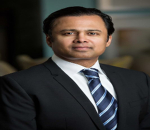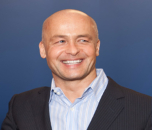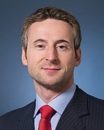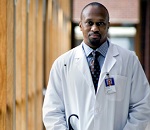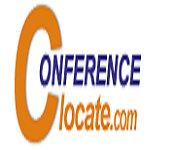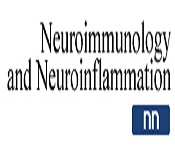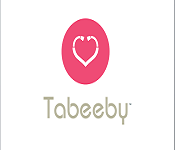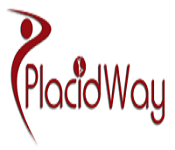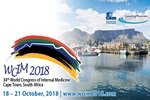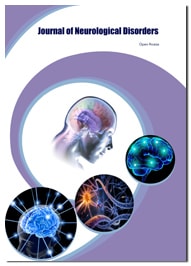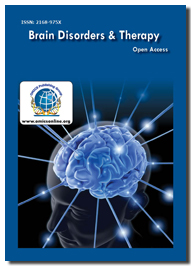Theme:
Renowned Speakers
Stroke Summit 2018
- Stroke Summit 2018
- Scientific Sessions
- Participation Benefits
- Virtual/Video Presentation
- Important Dates
- Market Analysis
On behalf of the programme committee, we extend our warmest welcome to the “6th World Summit on Heart, Stroke and Neurological Disorders, August 31- September 01, 2018 Boston, USA. Stroke Summit 2018 is a unique meeting that unites cardiologists and neurologists in order to pursue a holistic approach in the rapidly growing fields of Cardiology and Neurology for improved practice, research, education, recovery and patient care. This gathering is predominantly will focus the most recent and energizing developments in each range of Cardiology and Stroke research, and it will offer an exceptional opportunity for specialists from all over the world to meet, network, and distinguish with different scientific interactions.
Being held in the breath-taking city of Boston, Stroke Summit 2018 will be the ideal meeting point ​for the leading Neurologists, Neuroscientists, Neurosurgeons, Neuroradiologists, Interventional radiologists, Cardiologists, Cardiac surgeons, Physiatrists, Emergency medicine specialists, International speakers, Scientists, Researchers, University Professors, Students, College Faculty members, Primary care Physicians, Hospitalists, Nurses and Nurse practitioners, Rehabilitation specialists, Physical, Occupational and speech Therapists, Pharmacists, Business Entrepreneurs, Healthcare professionals and investigators to meet, network with different medical and scientific interactions. As a special designed cluster forum of Keynote talks, Plenary sessions, Workshops and Symposia along with Oral and Poster presentations, panel discussions with round table sessions focusing on interdisciplinary aspects as well as current and future concepts for epidemiology, research, prevention, and treatment of Neurological disorders like Stroke, Paediatric stroke, Nursing, Neurocritical care, Alzheimer’s and Dementia and Cardiovascular diseases like Cardiac arrest, Coronary heart disease, Congestive heart failure, diagnostic methods/devices, biomarkers and on-going Clinical trials..
Stroke Summit 2018 will provide a state of the art experience under the theme:
Take your chance and be part of this outstanding event by submitting your abstract proposals at: Abstract Submissions
The Conference will also have a space for companies and/or institutions to present their services, products, innovations and research results. If your company/organization is interested in participating in this event, contact us for Exhibition and Sponsorship opportunities.
Why to Attend?
-
For enhancing the Academic educational programs?
-
For Networking for future collaborations and travelling?
-
Socialization and the culture factor?
-
Discover what's new?
-
The concentration and vitality of Like-Minded Individuals?
-
Added Research Value?
While not all meetings offer you the chance to meet your scholarly and business icons, your odds are enormously enhanced when you're having a similar space. By attending other presentations in Stroke summit 2018, you will gain from others and enhance your own abilities and information about your field alongside other critical fields. It is additionally vital to draw in with their work, make inquiries and maybe go and see them after the panel. Like in some other profession, networking is imperative in our field.
For every one of these reasons, join us at Boston for Stroke Summit 2018 for the largest assembly of presenters and delegates in the Neurology and Cardiology fields. Conduct presentations, distribute information, meet with current and potential experts and make a splash with advanced research and development, and receive name recognition at this 2-day event. This summit is a best opportunity for companies to present their products and organize face-to-face meetings with business entrepreneurs who increase their business opportunities. The advantages are unquestionably greater than the expenses in the event that you know how to get the most out of each meeting. Consequently, the delight of going to gatherings carries with it change and incremental development in our way to deal with get things done, in the more extensive way to see things, and the magnificence to live universal assorted variety.
Stroke Summit 2018 will provide an opportunity to world researchers working in era of heart diseases and neurological disorders to deliver talk on their research. It will be a great opportunity to the speakers, experts, researchers from both academics and industrialists to discuss their research and views. Its main aim to deliver and exchange ideas with the leading scientists and to create awareness among people about Heart Diseases, Stroke and Neurological Disorders.
Target Audience
Cardiologists, Neurologists, Psychiatrists, Psychologists, Neurosurgeon, Head of the Department, Directors, Industries, Delegates, Clinical, Community members, Professors, Researchers, Students, Scientists, Nurses.
-
Cardiology Specialists
-
Cardiology Faculties
-
Cardiology Researchers and scientists
-
Cardiology students
-
Neurologists and Directors
-
Stroke Specialists
-
Physicians
-
Neuroscientists
-
Specialists
-
Researchers
-
Professors
-
Industrial Experts
-
Neurosurgeons
-
Psychiatrist
-
Nutritional Scientists
-
Lecturers and Students from Academia in the study of Parkinson disease
-
Students from Academia in the research of Neurology and Neuroscience
-
Therapists
Details of Stroke Conferences 2018 in USA
|
Conference Name |
Place |
Date |
|
|
Boston, Massachusetts, USA |
Aug 31- Sep 01, 2018 |
On behalf of the Organizing Committee it is our pleasure to invite you to “6th World Summit on Heart, Stroke and Neurological Disorders going to held on August 31- September 01, 2018 Boston, USA” under the theme “Exploring Insights in the prevention and treatment of Heart Failure, Brain Stroke and Neurological Disorders ”
Session On: Heart Failure and Brain Health
A chronic, progressive condition in which the heart muscle is unable to pump enough blood to meet the body's needs for blood and oxygen is termed as Heart Failure. The heart pumps 20% of blood to brain and brain receives oxygen through 20% blood. If heart failure happens, the blood supply or oxygen to the brain will be reduced and thereby memory loss happens. According to the new study, heart failure is directly associated with loss of grey matter in the brain which is associated with memory, reasoning and planning. It has been proven that many heart failure patients had bad long time or immediate memory. If any damages occur in heart or blood vessels, the blood supply to brain will be collapsed.
Related Topics: Heart disease and Alzheimer’s disease | Hypertension and Alzheimer’s disease | Acute Coronary Syndromes | Rheumatic heart disease | Hypertensive heart disease | Cerebrovascular disease
Related Events: Stroke Conferences | Neuroscience Conferences | Neurology Conferences | Heart Conferences | Cardiology Conferences | Stroke Summit | Neurological Disorders Conferences |
Related Conferences:
World Summit on Alzheimer’s Disease, Dementia Care Research and Awareness, Aug 31-Sept 01, 2018, Boston, USA; 8th International Conference on Cognitive Science, Brain Disorders and Research, Sept 21-22, 2018, Philadelphia, USA; 3rd International Conference on Neuropsychiatry and Sleep Medicine, Sept 21-22, 2018, Philadelphia, USA; International Conference on Neuroimmunology, Neurological disorders and Neurogenetics, Sept 26-27, 2018, Montreal, Canada; World Summit on Neurology, Neuroscience and Neuropharmacology, Sept 26-27, 2018, Montreal, Canada ; 5th International Conference on Parkinson’s Disease & Movement Disorders, Oct 19-20, 2018, NewYork, USA; 7th International Conference on Neurological Disorders & Stroke, September 20-21, 2018, Rome, Italy; 27th International Conference on Neurology and Cognitive Neuroscience, October 18-19, 2018, Warsaw, Poland; 2nd World Heart Congress, May 14-16, 2018, Tokyo, Japan.
Associations on Stroke:
USA
American Heart Association| American Stroke Association | National Stroke Association | Heart and Stroke Foundation of Canada | North Carolina Stroke Association | American Association of Neurological Surgeons | American Academy of Neurology
Europe:
European Society of Cardiology | British Junior Cardiologists Association| European Heart Network | European Heart Association| European Stroke Organization | World Federation of Neurology | The Brain Injury Association | European Federation of Neurological Associations | Spanish Society of Neurology | European neurological society | European Academy of Neurology
Asia:
Emirates Cardiac Society| Japanese Circulation Society| Philippine Heart Association| Asian Pacific Society of Cardiology |Asia Pacific Heart Association| Asian Society for Cardiovascular Surgery| South Asian Heart Center | Singapore National Stroke Association (SNSA) | Chinese Stroke Association| Pacific Stroke Association | Indian Stroke Association
Session On: Heart Diseases and Cardiac Arrest
Heart disease is the major cause of deaths in USA. There are many types of heart diseases and most common heart disease is Coronary Heart Disease where coronary arteries are narrowed or blocked. Cardiac arrest refers to the disruption of heart function that is the malfunction of electrical system of the heart. Often, heart attack mistakenly refers to cardiac arrest, but heart attacks are caused by a blockage that stops the blood supply to the heart.
Related Topics: Cardiac Rehabilitation | Cardiomyopathy | Congenital Heart Defects | Coronary Artery Disease | Diabetic Heart Disease | Emergency Treatment for Cardiac Arrest
Related Events: Stroke Conferences | Neuroscience Conferences | Neurology Conferences | Heart Conferences | Cardiology Conferences | Stroke Summit | Neurological Disorders Conferences |
Related Conferences:
International Conference on Neuroimmunology, Neurological disorders and Neurogenetics, Sept 26-27, 2018, Montreal, Canada; World Summit on Alzheimer’s Disease, Dementia Care Research and Awareness, Aug 31-Sept 01, 2018, Boston, USA; 8th International Conference on Cognitive Science, Brain Disorders and Research, Sept 21-22, 2018, Philadelphia, USA; 3rd International Conference on Neuropsychiatry and Sleep Medicine, Sept 21-22, 2018, Philadelphia, USA; World Summit on Neurology, Neuroscience and Neuropharmacology, Sept 26-27, 2018, Montreal, Canada ; 5th International Conference on Parkinson’s Disease & Movement Disorders, Oct 19-20, 2018, NewYork, USA; 7th International Conference on Neurological Disorders &Stroke, September 20-21, 2018, Rome, Italy; 27th International Conference on Neurology and Cognitive Neuroscience, October 18-19, 2018, Warsaw, Poland; 2nd World Heart Congress, May 14-16, 2018, Tokyo, Japan.
Associations:
USA
American Heart Association| American Stroke Association | National Stroke Association | Heart and Stroke Foundation of Canada | North Carolina Stroke Association | American Association of Neurological Surgeons | American Academy of Neurology
Europe:
European Society of Cardiology | British Junior Cardiologists Association| European Heart Network | European Heart Association| European Stroke Organization | World Federation of Neurology | The Brain Injury Association | European Federation of Neurological Associations | Spanish Society of Neurology | European neurological society | European Academy of Neurology
Asia:
Emirates Cardiac Society| Japanese Circulation Society| Philippine Heart Association| Asian Pacific Society of Cardiology |Asia Pacific Heart Association| Asian Society for Cardiovascular Surgery| South Asian Heart Center | Singapore National Stroke Association (SNSA) | Chinese Stroke Association| Pacific Stroke Association | Indian Stroke Association
Session On: Pediatric and Geriatric Cardiology
The pediatric cardiology termed as the study that provides diagnosis and management of congenital and acquired heart disease in infants, children, and adolescents. Congenital heart defect is a condition present at birth that affects the way heart works. According to the survey, in the year 2010, 1 million children and 1.4 million adults have been diagnosed with heart disease in USA. Geriatric cardiology deals with the study of cardiovascular disorders in elderly people. The most common heart disease that is being a mortality in old people is Coronary heart disease (CHD). Vascular disorders such as atherosclerosis and peripheral arterial disease cause significant morbidity and mortality in aged people. In 2005, around 4 lakhs people died due to CHD in USA of which 85% were in the age group above 65 years.
Related Topics: Electrophysiology and arrhythmia | Cardiac imaging | Interventional cardiology | Pediatric advanced cardiac therapies | Exercise and preventive heart disease
Related Events: Stroke Conferences | Neuroscience Conferences | Neurology Conferences | Heart Conferences | Cardiology Conferences | Stroke Summit | Neurological Disorders Conferences |
Related Conferences:
World Summit on Neurology, Neuroscience and Neuropharmacology, Sept 26-27, 2018, Montreal, Canada ; World Summit on Alzheimer’s Disease, Dementia Care Research and Awareness, Aug 31-Sept 01, 2018, Boston, USA; 8th International Conference on Cognitive Science, Brain Disorders and Research, Sept 21-22, 2018, Philadelphia, USA; 3rd International Conference on Neuropsychiatry and Sleep Medicine, Sept 21-22, 2018, Philadelphia, USA; International Conference on Neuroimmunology, Neurological disorders and Neurogenetics, Sept 26-27, 2018, Montreal, Canada; 5th International Conference on Parkinson’s Disease & Movement Disorders, Oct 19-20, 2018, NewYork, USA; 7th International Conference on Neurological Disorders &Stroke, September 20-21, 2018, Rome, Italy; 27th International Conference on Neurology and Cognitive Neuroscience, October 18-19, 2018, Warsaw, Poland; 2nd World Heart Congress, May 14-16, 2018, Tokyo, Japan.
Associations on Stroke:
USA
American Heart Association| American Stroke Association | National Stroke Association | Heart and Stroke Foundation of Canada | North Carolina Stroke Association | American Association of Neurological Surgeons | American Academy of Neurology
Europe:
European Society of Cardiology | British Junior Cardiologists Association| European Heart Network | European Heart Association| European Stroke Organization | World Federation of Neurology | The Brain Injury Association | European Federation of Neurological Associations | Spanish Society of Neurology | European neurological society | European Academy of Neurology
Asia:
Emirates Cardiac Society| Japanese Circulation Society| Philippine Heart Association| Asian Pacific Society of Cardiology |Asia Pacific Heart Association| Asian Society for Cardiovascular Surgery| South Asian Heart Center | Singapore National Stroke Association (SNSA) | Chinese Stroke Association| Pacific Stroke Association | Indian Stroke Association
Session On: Cardiac Nursing and Health Care
Cardiac nursing is a specialty nursing in which nurses will work with the patients affected by various heart diseases. Cardiac nurses help in treating the conditions like unstable angina, cardiomyopathy, coronary artery disease, congestive heart failure, myocardial infarction and cardiac dysrhythmia under the guidance of a cardiologists. They care for patients those who are recovering from cardiac procedures such as bypass, angioplasty, or pacemaker surgery. Cardiac nurses must have basic Life Support and Advanced Cardiac Life Support certification.
Related Topics: Interventional Cardiac Nurses | Postoperative care | Cardiac and Vascular Monitoring | Hemodynamic Monitoring | Monitoring stress test evaluations
Related Events: Stroke Conferences | Neuroscience Conferences | Neurology Conferences | Heart Conferences | Cardiology Conferences | Stroke Summit | Neurological Disorders Conferences |
Related Conferences:
World Summit on Alzheimer’s Disease, Dementia Care Research and Awareness, Aug 31-Sept 01, 2018, Boston, USA; 8th International Conference on Cognitive Science, Brain Disorders and Research, Sept 21-22, 2018, Philadelphia, USA; 3rd International Conference on Neuropsychiatry and Sleep Medicine, Sept 21-22, 2018, Philadelphia, USA; International Conference on Neuroimmunology, Neurological disorders and Neurogenetics, Sept 26-27, 2018, Montreal, Canada; World Summit on Neurology, Neuroscience and Neuropharmacology, Sept 26-27, 2018, Montreal, Canada ; 5th International Conference on Parkinson’s Disease & Movement Disorders, Oct 19-20, 2018, NewYork, USA; 7th International Conference on Neurological Disorders & Stroke, September 20-21, 2018, Rome, Italy; 27th International Conference on Neurology and Cognitive Neuroscience, October 18-19, 2018, Warsaw, Poland; 2nd World Heart Congress, May 14-16, 2018, Tokyo, Japan.
Associations:
USA
American Heart Association| American Stroke Association | National Stroke Association | Heart and Stroke Foundation of Canada | North Carolina Stroke Association | American Association of Neurological Surgeons | American Academy of Neurology
Europe:
European Society of Cardiology | British Junior Cardiologists Association| European Heart Network | European Heart Association| European Stroke Organization | World Federation of Neurology | The Brain Injury Association | European Federation of Neurological Associations | Spanish Society of Neurology | European neurological society | European Academy of Neurology
Asia:
Emirates Cardiac Society| Japanese Circulation Society| Philippine Heart Association| Asian Pacific Society of Cardiology |Asia Pacific Heart Association| Asian Society for Cardiovascular Surgery| South Asian Heart Center | Singapore National Stroke Association (SNSA) | Chinese Stroke Association| Pacific Stroke Association | Indian Stroke Association
Session On: Cardiovascular Research and Hypertension
Cardiovascular research extensively involves the research aspects in the field of cardiology, diagnosis and treatment of cardiovascular diseases such as cardiomyopathy, atherosclerosis, arrhythmia, heart attack, impairment of function of cardiac valves and congenital heart diseases. This conference will be platform for postgraduate students to conduct work in the fields of cardiology, angiology, hypertension and cardiac and vascular surgery. One of main causes of cardiac arrest is Hypertension. The excess strain or hypertension causes the narrowing of arteries that supply blood to heart and causes deposition of fat and cholesterol, thereby causing Heart attack or stroke. The common symptom of heart attack is chest pain.
Related Topics: Essential hypertension | Secondary hypertension | Isolated systolic hypertension | Malignant hypertension | Pulmonary Hypertension | Pseudo-Hypertension
Related Events: Stroke Conferences | Neuroscience Conferences | Neurology Conferences | Heart Conferences | Cardiology Conferences | Stroke Summit | Neurological Disorders Conferences |
Related Conferences:
World Summit on Neurology, Neuroscience and Neuropharmacology, Sept 26-27, 2018, Montreal, Canada ; World Summit on Alzheimer’s Disease, Dementia Care Research and Awareness, Aug 31-Sept 01, 2018, Boston, USA; 8th International Conference on Cognitive Science, Brain Disorders and Research, Sept 21-22, 2018, Philadelphia, USA; 3rd International Conference on Neuropsychiatry and Sleep Medicine, Sept 21-22, 2018, Philadelphia, USA; International Conference on Neuroimmunology, Neurological disorders and Neurogenetics, Sept 26-27, 2018, Montreal, Canada; 5th International Conference on Parkinson’s Disease & Movement Disorders, Oct 19-20, 2018, NewYork, USA; 7th International Conference on Neurological Disorders &Stroke, September 20-21, 2018, Rome, Italy; 27th International Conference on Neurology and Cognitive Neuroscience, October 18-19, 2018, Warsaw, Poland; 2nd World Heart Congress, May 14-16, 2018, Tokyo, Japan.
Associations:
USA
American Heart Association| American Stroke Association | National Stroke Association | Heart and Stroke Foundation of Canada | North Carolina Stroke Association | American Association of Neurological Surgeons | American Academy of Neurology
Europe:
European Society of Cardiology | British Junior Cardiologists Association| European Heart Network | European Heart Association| European Stroke Organization | World Federation of Neurology | The Brain Injury Association | European Federation of Neurological Associations | Spanish Society of Neurology | European neurological society | European Academy of Neurology
Asia:
Emirates Cardiac Society| Japanese Circulation Society| Philippine Heart Association| Asian Pacific Society of Cardiology |Asia Pacific Heart Association| Asian Society for Cardiovascular Surgery| South Asian Heart Center | Singapore National Stroke Association (SNSA) | Chinese Stroke Association| Pacific Stroke Association | Indian Stroke Association
Session On: Cardiac Surgery and Heart Regeneration
Cardiac Surgery is a division of medicine that deals with the surgery of heart by cardiac surgeons. It is mainly implemented for complex heart problems. Cardiac surgery also includes Heart Transplantation. The cardiac surgeries include Aortic surgery, Aortic valve surgery, Congenital heart surgery, Left ventricular assist device (LVAD), Coronary artery bypass graft (CABG) surgery. Heart regeneration is a broad effort that aims to repair irreversibly damaged heart tissue with techniques like stem cell and cell-free therapy. Reparative tools have been engineered to restore damaged heart tissue and function using the body's natural ability to regenerate.
Related Topics: Shockwave therapy for heart Regeneration | Paediatric cardiovascular surgery| Minimally invasive surgery |Open heart surgery | Cardiomyocyte maturation | Transcriptional regulation
Related Events: Stroke Conferences | Neuroscience Conferences | Neurology Conferences | Heart Conferences | Cardiology Conferences | Stroke Summit | Neurological Disorders Conferences |
Related Conferences:
International Conference on Neuroimmunology, Neurological disorders and Neurogenetics, Sept 26-27, 2018, Montreal, Canada; World Summit on Alzheimer’s Disease, Dementia Care Research and Awareness, Aug 31-Sept 01, 2018, Boston, USA; 8th International Conference on Cognitive Science, Brain Disorders and Research, Sept 21-22, 2018, Philadelphia, USA; 3rd International Conference on Neuropsychiatry and Sleep Medicine, Sept 21-22, 2018, Philadelphia, USA; World Summit on Neurology, Neuroscience and Neuropharmacology, Sept 26-27, 2018, Montreal, Canada ; 5th International Conference on Parkinson’s Disease & Movement Disorders, Oct 19-20, 2018, NewYork, USA; 7th International Conference on Neurological Disorders &Stroke, September 20-21, 2018, Rome, Italy; 27th International Conference on Neurology and Cognitive Neuroscience, October 18-19, 2018, Warsaw, Poland; 2nd World Heart Congress, May 14-16, 2018, Tokyo, Japan.
Associations:
USA
American Heart Association| American Stroke Association | National Stroke Association | Heart and Stroke Foundation of Canada | North Carolina Stroke Association | American Association of Neurological Surgeons | American Academy of Neurology
Europe:
European Society of Cardiology | British Junior Cardiologists Association| European Heart Network | European Heart Association| European Stroke Organization | World Federation of Neurology | The Brain Injury Association | European Federation of Neurological Associations | Spanish Society of Neurology | European neurological society | European Academy of Neurology
Asia:
Emirates Cardiac Society| Japanese Circulation Society| Philippine Heart Association| Asian Pacific Society of Cardiology |Asia Pacific Heart Association| Asian Society for Cardiovascular Surgery| South Asian Heart Center | Singapore National Stroke Association (SNSA) | Chinese Stroke Association| Pacific Stroke Association | Indian Stroke Association
Session On: Stroke, Epidemiology, Management and Prevention
Stroke occurs when the supply of blood to the brain is either interrupted or reduced. When this happens, the brain does not get enough oxygen or nutrients, which causes brain cells to die. Some stroke risk factors can’t be controlled. These include gender, age and family history. However, many stroke risk factors are lifestyle related. Everyone can reduce their risk of having a stroke by making a few simple lifestyle changes. There are some races and ethnic origins that are more prone to stroke than others. This includes those of Asian, African or Caribbean origin. The goal for the acute management of patients with stroke is to stabilize the patient and to complete initial evaluation and assessment, including imaging and laboratory studies, within 60 minutes of patient arrival. Critical decisions focus on the need for intubation, blood pressure control, and determination of risk or benefit for thrombolytic intervention. Hypoglycaemia and hyperglycaemia need to be identified and treated early in the evaluation.
The best way to prevent a stroke is to address the underlying causes. This is best done by living healthfully, which means Eating a healthy diet, maintaining a healthy weight, Exercise regularly, Avoiding alcohol or drink moderately.
Related Topics: Beneficial effect of Carotid endarterectomy | Neural stem cell therapy | Transient ischemic attack | Symptoms of Stroke | High blood pressure and stroke | Carotid artery stenosis
Related Events: Stroke Conferences | Neuroscience Conferences | Neurology Conferences | Heart Conferences | Cardiology Conferences | Stroke Summit | Neurological Disorders Conferences |
Related Conferences:
World Summit on Alzheimer’s Disease, Dementia Care Research and Awareness, Aug 31-Sept 01, 2018, Boston, USA; 8th International Conference on Cognitive Science, Brain Disorders and Research, Sept 21-22, 2018, Philadelphia, USA; 3rd International Conference on Neuropsychiatry and Sleep Medicine, Sept 21-22, 2018, Philadelphia, USA; International Conference on Neuroimmunology, Neurological disorders and Neurogenetics, Sept 26-27, 2018, Montreal, Canada; World Summit on Neurology, Neuroscience and Neuropharmacology, Sept 26-27, 2018, Montreal, Canada ; 5th International Conference on Parkinson’s Disease & Movement Disorders, Oct 19-20, 2018, NewYork, USA; 7th International Conference on Neurological Disorders & Stroke, September 20-21, 2018, Rome, Italy; 27th International Conference on Neurology and Cognitive Neuroscience, October 18-19, 2018, Warsaw, Poland; 2nd World Heart Congress, May 14-16, 2018, Tokyo, Japan.
Associations:
USA
American Heart Association| American Stroke Association | National Stroke Association | Heart and Stroke Foundation of Canada | North Carolina Stroke Association | American Association of Neurological Surgeons | American Academy of Neurology
Europe:
European Society of Cardiology | British Junior Cardiologists Association| European Heart Network | European Heart Association| European Stroke Organization | World Federation of Neurology | The Brain Injury Association | European Federation of Neurological Associations | Spanish Society of Neurology | European neurological society | European Academy of Neurology
Asia:
Emirates Cardiac Society| Japanese Circulation Society| Philippine Heart Association| Asian Pacific Society of Cardiology |Asia Pacific Heart Association| Asian Society for Cardiovascular Surgery| South Asian Heart Center | Singapore National Stroke Association (SNSA) | Chinese Stroke Association| Pacific Stroke Association | Indian Stroke Association
Session On: Paediatric Stroke and Recovery
Stroke is the main cause of death in children in USA and the most paediatric stroke survivors will be suffering from neurological or cognitive impairments. Because of the plasticity of the brains of children, they recover faster than adults. A stroke survivor may be diagnosed with Epilepsy. Based on the cause of the stroke, the treatments will be decided by the physicians. Constraint therapy is an old therapy, but it is now extensively used in the paediatric stroke rehabilitation. If the stroke is caused by the blockage, then blood thinning medications will be given. If stroke happens due to Sickle Cell Disease (SCD), then an immediate blood transfusion will be performed. A physiotherapist can help with movement problems such as weakness or paralysis, spasticity (a stiffness that develops in the muscles after stroke) or muscle spasms. The therapist will assess and design a programme to improve muscle strength (which can reduce the risk of spasticity) and movement.
Related Topics: Occupational Therapists | Speech and Language Therapist (SLT) | Paediatric Motor Activity Log | Paediatric Arm Function Test | Functional Electrical Stimulation | Constraint Induced Movement Therapy | Repetitive Transcranial Magnetic Stimulation
Related Events: Stroke Conferences | Neuroscience Conferences | Neurology Conferences | Heart Conferences | Cardiology Conferences | Stroke Summit | Neurological Disorders Conferences |
Related Conferences:
World Summit on Neurology, Neuroscience and Neuropharmacology, Sept 26-27, 2018, Montreal, Canada ; World Summit on Alzheimer’s Disease, Dementia Care Research and Awareness, Aug 31-Sept 01, 2018, Boston, USA; 8th International Conference on Cognitive Science, Brain Disorders and Research, Sept 21-22, 2018, Philadelphia, USA; 3rd International Conference on Neuropsychiatry and Sleep Medicine, Sept 21-22, 2018, Philadelphia, USA; International Conference on Neuroimmunology, Neurological disorders and Neurogenetics, Sept 26-27, 2018, Montreal, Canada; 5th International Conference on Parkinson’s Disease & Movement Disorders, Oct 19-20, 2018, NewYork, USA; 7th International Conference on Neurological Disorders &Stroke, September 20-21, 2018, Rome, Italy; 27th International Conference on Neurology and Cognitive Neuroscience, October 18-19, 2018, Warsaw, Poland; 2nd World Heart Congress, May 14-16, 2018, Tokyo, Japan.
Associations:
USA
American Heart Association| American Stroke Association | National Stroke Association | Heart and Stroke Foundation of Canada | North Carolina Stroke Association | American Association of Neurological Surgeons | American Academy of Neurology
Europe:
European Society of Cardiology | British Junior Cardiologists Association| European Heart Network | European Heart Association| European Stroke Organization | World Federation of Neurology | The Brain Injury Association | European Federation of Neurological Associations | Spanish Society of Neurology | European neurological society | European Academy of Neurology
Asia:
Emirates Cardiac Society| Japanese Circulation Society| Philippine Heart Association| Asian Pacific Society of Cardiology |Asia Pacific Heart Association| Asian Society for Cardiovascular Surgery| South Asian Heart Center | Singapore National Stroke Association (SNSA) | Chinese Stroke Association| Pacific Stroke Association | Indian Stroke Association
Session On: Stroke Nursing and Interventions
Nurses play a pivotal role in all phases of care of the stroke patient. Some of the nurse caring plans are Ineffective Cerebral Tissue Perfusion, Impaired Physical Mobility, Impaired Verbal Communication, Disturbed Sensory Perception, Ineffective Coping, Self-Care Deficit, Risk for Impaired Swallowing. Nurses may work as emergency medical technician (EMT) and paramedics, radio providers of online medical control to emergency medical services (EMS) personnel from base stations, and educators who teach EMS personnel about stroke and the care of stroke patients. Nurse Interventions are monitoring major signs in patients such as monitoring blood pressure, comparing BP reading in both arms, heart rate, rhythm and murmurs. There also monitor Respirations, noting patterns and rhythm, Cheyne-Stokes respiration.
Related Topics: Assistive ambulatory devices | Frequent neurological assessments | Promote self-care | Promote adequate nutrition | Ineffective Tissue Perfusion
Related Events: Stroke Conferences | Neuroscience Conferences | Neurology Conferences | Heart Conferences | Cardiology Conferences | Stroke Summit | Neurological Disorders Conferences |
Related Conferences:
International Conference on Neuroimmunology, Neurological disorders and Neurogenetics, Sept 26-27, 2018, Montreal, Canada; World Summit on Alzheimer’s Disease, Dementia Care Research and Awareness, Aug 31-Sept 01, 2018, Boston, USA; 8th International Conference on Cognitive Science, Brain Disorders and Research, Sept 21-22, 2018, Philadelphia, USA; 3rd International Conference on Neuropsychiatry and Sleep Medicine, Sept 21-22, 2018, Philadelphia, USA; World Summit on Neurology, Neuroscience and Neuropharmacology, Sept 26-27, 2018, Montreal, Canada ; 5th International Conference on Parkinson’s Disease & Movement Disorders, Oct 19-20, 2018, NewYork, USA; 7th International Conference on Neurological Disorders &Stroke, September 20-21, 2018, Rome, Italy; 27th International Conference on Neurology and Cognitive Neuroscience, October 18-19, 2018, Warsaw, Poland; 2nd World Heart Congress, May 14-16, 2018, Tokyo, Japan.
Associations:
USA
American Heart Association| American Stroke Association | National Stroke Association | Heart and Stroke Foundation of Canada | North Carolina Stroke Association | American Association of Neurological Surgeons | American Academy of Neurology
Europe:
European Society of Cardiology | British Junior Cardiologists Association| European Heart Network | European Heart Association| European Stroke Organization | World Federation of Neurology | The Brain Injury Association | European Federation of Neurological Associations | Spanish Society of Neurology | European neurological society | European Academy of Neurology
Asia:
Emirates Cardiac Society| Japanese Circulation Society| Philippine Heart Association| Asian Pacific Society of Cardiology |Asia Pacific Heart Association| Asian Society for Cardiovascular Surgery| South Asian Heart Center | Singapore National Stroke Association (SNSA) | Chinese Stroke Association| Pacific Stroke Association | Indian Stroke Association
Session On: Stroke Rehabilitation and Brain Haemorrhage
The long-term goal of rehabilitation is to improve function so that the stroke survivor can become as independent as possible. This must be accomplished in a way that preserves dignity and motivates the survivor to relearn basic skills that the stroke may have impaired - skills like bathing, eating, dressing and walking. Rehabilitation starts in the hospital as soon as possible following a stroke. The rehab team includes Physiatrist, Neurologist, Rehabilitation Nurse, Physical Therapist, Occupational Therapist and Speech-Language Pathologists. Brain Haemorrhage is one of the types of Stroke. It is caused by internal bleeding of brain and eventually it kills the brain cells. Brain Haemorrhage is otherwise known as Cerebral haemorrhages, intracranial haemorrhages, or intracerebral haemorrhages. They occur for about 13% of strokes.
Related Topics: Motor-skill exercises | Mobility training | Constraint-induced therapy | Range-of-motion therapy | Functional electrical stimulation | Robotic technology | Therapy for cognitive disorders
Related Events: Stroke Conferences | Neuroscience Conferences | Neurology Conferences | Heart Conferences | Cardiology Conferences | Stroke Summit | Neurological Disorders Conferences |
Related Conferences:
World Summit on Alzheimer’s Disease, Dementia Care Research and Awareness, Aug 31-Sept 01, 2018, Boston, USA; 8th International Conference on Cognitive Science, Brain Disorders and Research, Sept 21-22, 2018, Philadelphia, USA; 3rd International Conference on Neuropsychiatry and Sleep Medicine, Sept 21-22, 2018, Philadelphia, USA; International Conference on Neuroimmunology, Neurological disorders and Neurogenetics, Sept 26-27, 2018, Montreal, Canada; World Summit on Neurology, Neuroscience and Neuropharmacology, Sept 26-27, 2018, Montreal, Canada ; 5th International Conference on Parkinson’s Disease & Movement Disorders, Oct 19-20, 2018, NewYork, USA; 7th International Conference on Neurological Disorders & Stroke, September 20-21, 2018, Rome, Italy; 27th International Conference on Neurology and Cognitive Neuroscience, October 18-19, 2018, Warsaw, Poland; 2nd World Heart Congress, May 14-16, 2018, Tokyo, Japan.
Associations:
USA
American Heart Association| American Stroke Association | National Stroke Association | Heart and Stroke Foundation of Canada | North Carolina Stroke Association | American Association of Neurological Surgeons | American Academy of Neurology
Europe:
European Society of Cardiology | British Junior Cardiologists Association| European Heart Network | European Heart Association| European Stroke Organization | World Federation of Neurology | The Brain Injury Association | European Federation of Neurological Associations | Spanish Society of Neurology | European neurological society | European Academy of Neurology
Asia:
Emirates Cardiac Society| Japanese Circulation Society| Philippine Heart Association| Asian Pacific Society of Cardiology |Asia Pacific Heart Association| Asian Society for Cardiovascular Surgery| South Asian Heart Center | Singapore National Stroke Association (SNSA) | Chinese Stroke Association| Pacific Stroke Association | Indian Stroke Association
Session On: Alzheimer’s and Dementia
Dementia and Alzheimer’s disease aren’t the same. Dementia is an overall term used to describe symptoms that impact memory, performance of daily activities, and communication abilities. Alzheimer’s disease is the most common type of dementia. Alzheimer’s disease gets worse with time and affects memory, language, and thought. Dementia is a syndrome, not a disease. A syndrome is a group of symptoms that doesn’t have a definitive diagnosis. Dementia is a group of symptoms that affects mental cognitive tasks such as memory and reasoning. Dementia is an umbrella term that Alzheimer’s disease can fall under. It can occur due to a variety of conditions, the most common of which is Alzheimer’s disease.
Related Topics: Diagnosis of Alzheimer’s Disease| Therapeutic advances for Alzheimer’s Disease | Prevention of Alzheimer’s disease | Lewy body dementia | Amyloid and Tau imaging
Related Events: Stroke Conferences | Neuroscience Conferences | Neurology Conferences | Heart Conferences | Cardiology Conferences | Stroke Summit | Neurological Disorders Conferences |
Related Conferences:
World Summit on Neurology, Neuroscience and Neuropharmacology, Sept 26-27, 2018, Montreal, Canada ; World Summit on Alzheimer’s Disease, Dementia Care Research and Awareness, Aug 31-Sept 01, 2018, Boston, USA; 8th International Conference on Cognitive Science, Brain Disorders and Research, Sept 21-22, 2018, Philadelphia, USA; 3rd International Conference on Neuropsychiatry and Sleep Medicine, Sept 21-22, 2018, Philadelphia, USA; International Conference on Neuroimmunology, Neurological disorders and Neurogenetics, Sept 26-27, 2018, Montreal, Canada; 5th International Conference on Parkinson’s Disease & Movement Disorders, Oct 19-20, 2018, NewYork, USA; 7th International Conference on Neurological Disorders &Stroke, September 20-21, 2018, Rome, Italy; 27th International Conference on Neurology and Cognitive Neuroscience, October 18-19, 2018, Warsaw, Poland; 2nd World Heart Congress, May 14-16, 2018, Tokyo, Japan.
Associations:
USA
American Heart Association| American Stroke Association | National Stroke Association | Heart and Stroke Foundation of Canada | North Carolina Stroke Association | American Association of Neurological Surgeons | American Academy of Neurology
Europe:
European Society of Cardiology | British Junior Cardiologists Association| European Heart Network | European Heart Association| European Stroke Organization | World Federation of Neurology | The Brain Injury Association | European Federation of Neurological Associations | Spanish Society of Neurology | European neurological society | European Academy of Neurology
Asia:
Emirates Cardiac Society| Japanese Circulation Society| Philippine Heart Association| Asian Pacific Society of Cardiology |Asia Pacific Heart Association| Asian Society for Cardiovascular Surgery| South Asian Heart Center | Singapore National Stroke Association (SNSA) | Chinese Stroke Association| Pacific Stroke Association | Indian Stroke Association
Session On: Neurophysiology and Neurodegeneration
Neuroscience is a branch of study that deals with the anatomy, biochemistry, molecular biology, and physiology of neurons and neural circuits. The scope of neuroscience has broadened over time to include different approaches used to study the molecular, cellular, developmental, structural, functional, evolutionary, computational, psychosocial and medical aspects of the nervous system. The tools used for imaging Nerve are Positron Emission Tomography(PET), Diffusion Tensor imaging(DTI), Magnetic Resonance Neurography(MRN), Computerized Tomography(CT), Plain X Ray. MRN is the advanced technique used to image Peripheral Nerve for the diagnosis of any disorder in the Nerves and Neuromuscular diseases. It can image any Nerves in the body and are commonly used for the diagnosis of Nerve disorder in Brachial Plexus.
Related Topics: Short tau inversion recovery (STIR) | Myelography | Fast spin echo sequences | Electrodiagnostic studies | Pseudo meningoceles | Cognitive Neuroscience
Related Events: Stroke Conferences | Neuroscience Conferences | Neurology Conferences | Heart Conferences | Cardiology Conferences | Stroke Summit | Neurological Disorders Conferences |
Related Conferences:
International Conference on Neuroimmunology, Neurological disorders and Neurogenetics, Sept 26-27, 2018, Montreal, Canada; World Summit on Alzheimer’s Disease, Dementia Care Research and Awareness, Aug 31-Sept 01, 2018, Boston, USA; 8th International Conference on Cognitive Science, Brain Disorders and Research, Sept 21-22, 2018, Philadelphia, USA; 3rd International Conference on Neuropsychiatry and Sleep Medicine, Sept 21-22, 2018, Philadelphia, USA; World Summit on Neurology, Neuroscience and Neuropharmacology, Sept 26-27, 2018, Montreal, Canada ; 5th International Conference on Parkinson’s Disease & Movement Disorders, Oct 19-20, 2018, NewYork, USA; 7th International Conference on Neurological Disorders &Stroke, September 20-21, 2018, Rome, Italy; 27th International Conference on Neurology and Cognitive Neuroscience, October 18-19, 2018, Warsaw, Poland; 2nd World Heart Congress, May 14-16, 2018, Tokyo, Japan.
Associations:
USA
American Heart Association| American Stroke Association | National Stroke Association | Heart and Stroke Foundation of Canada | North Carolina Stroke Association | American Association of Neurological Surgeons | American Academy of Neurology
Europe:
European Society of Cardiology | British Junior Cardiologists Association| European Heart Network | European Heart Association| European Stroke Organization | World Federation of Neurology | The Brain Injury Association | European Federation of Neurological Associations | Spanish Society of Neurology | European neurological society | European Academy of Neurology
Asia:
Emirates Cardiac Society| Japanese Circulation Society| Philippine Heart Association| Asian Pacific Society of Cardiology |Asia Pacific Heart Association| Asian Society for Cardiovascular Surgery| South Asian Heart Center | Singapore National Stroke Association (SNSA) | Chinese Stroke Association| Pacific Stroke Association | Indian Stroke Association
Session On: Neurological Disorders and Neuroplasticity
There are about 600 Neurological disorders and approximately 50 million Americans are being affected each year. The main risk factors for Neurological disorders are genetic manipulation, age, lifestyle and other environmental agents. Abnormalities in structural and biochemical functions causes various symptoms. Some of them are paralysis, seizures, confusion, muscle weakness and altered levels of consciousness.
The ability of the Brain to alter at any age is referred to as Neuroplasticity or Brain Plasticity. The recent neuroscience research proves that Neuroplasticity is the basis for brain training exercises which revolutionized the brain health and science research. There is a great reception for Brain plasticity-based therapies for many cognitive problems since it is a non- invasive treatment.
Related Topics: Synaptic Strengthening | Synaptic weakening | Plasticity Induced Changes | Traumatic Brain Injury | Schizophrenia | Neurological and Behavioural Impairments
Related Events: Stroke Conferences | Neuroscience Conferences | Neurology Conferences | Heart Conferences | Cardiology Conferences | Stroke Summit | Neurological Disorders Conferences |
Related Conferences:
World Summit on Alzheimer’s Disease, Dementia Care Research and Awareness, Aug 31-Sept 01, 2018, Boston, USA; 8th International Conference on Cognitive Science, Brain Disorders and Research, Sept 21-22, 2018, Philadelphia, USA; 3rd International Conference on Neuropsychiatry and Sleep Medicine, Sept 21-22, 2018, Philadelphia, USA; International Conference on Neuroimmunology, Neurological disorders and Neurogenetics, Sept 26-27, 2018, Montreal, Canada; World Summit on Neurology, Neuroscience and Neuropharmacology, Sept 26-27, 2018, Montreal, Canada ; 5th International Conference on Parkinson’s Disease & Movement Disorders, Oct 19-20, 2018, NewYork, USA; 7th International Conference on Neurological Disorders & Stroke, September 20-21, 2018, Rome, Italy; 27th International Conference on Neurology and Cognitive Neuroscience, October 18-19, 2018, Warsaw, Poland; 2nd World Heart Congress, May 14-16, 2018, Tokyo, Japan.
Associations:
USA
American Heart Association| American Stroke Association | National Stroke Association | Heart and Stroke Foundation of Canada | North Carolina Stroke Association | American Association of Neurological Surgeons | American Academy of Neurology
Europe:
European Society of Cardiology | British Junior Cardiologists Association| European Heart Network | European Heart Association| European Stroke Organization | World Federation of Neurology | The Brain Injury Association | European Federation of Neurological Associations | Spanish Society of Neurology | European neurological society | European Academy of Neurology
Asia:
Emirates Cardiac Society| Japanese Circulation Society| Philippine Heart Association| Asian Pacific Society of Cardiology |Asia Pacific Heart Association| Asian Society for Cardiovascular Surgery| South Asian Heart Center | Singapore National Stroke Association (SNSA) | Chinese Stroke Association| Pacific Stroke Association | Indian Stroke Association
Session On: Clinical Trials in Neurology
Clinical trials and research are an important part in the department of Neurology. This clinical trial will lead to new discovery that eventually improve the patient health. Clinical trials allow researchers to study new treatment options, drugs or combinations of treatments to determine if they can be integrated into a standard practice of care. A list of active clinical trials is provided below. Many research trials have been conducted in each department of neurology to ensure the safety and advancement of patient care.
Related Topics: Clinical Trials in Alzheimer’s Disease | Clinical Trials in Stroke | Clinical Trials in Parkinson’s Disease | Clinical Trials in ALS | Clinical Trials in Movement Disorder
Related Events: Stroke Conferences | Neuroscience Conferences | Neurology Conferences | Heart Conferences | Cardiology Conferences | Stroke Summit | Neurological Disorders Conferences |
Related Conferences:
International Conference on Neuroimmunology, Neurological disorders and Neurogenetics, Sept 26-27, 2018, Montreal, Canada; World Summit on Alzheimer’s Disease, Dementia Care Research and Awareness, Aug 31-Sept 01, 2018, Boston, USA; 8th International Conference on Cognitive Science, Brain Disorders and Research, Sept 21-22, 2018, Philadelphia, USA; 3rd International Conference on Neuropsychiatry and Sleep Medicine, Sept 21-22, 2018, Philadelphia, USA; World Summit on Neurology, Neuroscience and Neuropharmacology, Sept 26-27, 2018, Montreal, Canada ; 5th International Conference on Parkinson’s Disease & Movement Disorders, Oct 19-20, 2018, NewYork, USA; 7th International Conference on Neurological Disorders &Stroke, September 20-21, 2018, Rome, Italy; 27th International Conference on Neurology and Cognitive Neuroscience, October 18-19, 2018, Warsaw, Poland; 2nd World Heart Congress, May 14-16, 2018, Tokyo, Japan.
Associations:
USA
American Heart Association| American Stroke Association | National Stroke Association | Heart and Stroke Foundation of Canada | North Carolina Stroke Association | American Association of Neurological Surgeons | American Academy of Neurology
Europe:
European Society of Cardiology | British Junior Cardiologists Association| European Heart Network | European Heart Association| European Stroke Organization | World Federation of Neurology | The Brain Injury Association | European Federation of Neurological Associations | Spanish Society of Neurology | European neurological society | European Academy of Neurology
Asia:
Emirates Cardiac Society| Japanese Circulation Society| Philippine Heart Association| Asian Pacific Society of Cardiology |Asia Pacific Heart Association| Asian Society for Cardiovascular Surgery| South Asian Heart Center | Singapore National Stroke Association (SNSA) | Chinese Stroke Association| Pacific Stroke Association | Indian Stroke Association
Benefits of participating@ Stroke Summit 2018
- Access to all Scientific Sessions (Keynotes, Plenary, Workshops, Symposiums, Poster Presentations)
- Will be felicitated with International Organizing Committee Member (IOCM) Certificate
- Full Conference Kit with Conference Souvenir and Final Program (e-copies)
- Abstracts will be published in the conference souvenir and respective International journals
- Each Abstract will receive unique (DOI) Number provided by Cross Ref
- Laudable talks by the top-notch of the Global Scientific Community
- Website visibility to more than 35K visitors in less than 6 months
- Keynote sessions by world’s most eminent researchers
- One on One Meeting with Eminent Speakers
- Top Industries Representation
- Thought provoking Symposiums and Workshops
- Preconference Workshops in all major countries
- Remarkable Awards and Global Recognition to meritorious Researchers
- Nominations for Best Poster Award
- Outstanding Young Researcher Award geared towards best budding young research.
- Group Registration benefits
- Advance Research oriented presentations
- Collaborations across Academia & Industry
- Triumph of Awards, Certificates recognizes your commitment to your profession to encourage the nascent research.
- A wide track of Exhibitors to showcase the new and emerging technologies.
- Platform to Global investment community to connect with stakeholders
- Exquisite Platform for showcasing your products and International Sponsorship
- Best platform to develop new partnership & collaborations.
- Best location to speed up your route into every territory in the World.
- 89% our conference attendees are the Key contact in their universities, companies, organizations, hospitals, medical centers, labs purchasing decisions.
- Our exhibitor booths were visited 4-5 times by 80% of the attendees during the conference.
- Past exhibitor’s feedback reveals ample of enquiries perceived from the conference attendees.
Why Virtual/Video Presentation?
A professionally produced video will keep your audience more focused and engaged with the overall content; it will tell your story and will provoke emotional responses. Video presentation perfectly aligns with your goals as a presenter: you want an engaged audience to think about and act on the information you’re conveying. It’s easy to improve the audience experience through video, which utilizes sight and sound to reel the audience in. A short video will give them better ideas of your vision or approach, and more efficiently, everyone benefits. You will communicate more with less.
Virtual/Video presentations are increasing interest in providing learners with actual presentations and video is demonstrated to be an expanding channel for presentation. Video presentation is currently used by our 2000+ speakers (having VISA issues, schedule conflicts etc.…) across the globe.
Video Presentation Opportunity: Unavailability to travel due to various issues such as time constraint and visa to enter the country. Video presentation is one best option to put across your research at a global platform. Having video played at the conference proceedings, would surely serve the purpose of online visibility for your research.
-
No Travel Plan & Agreements
-
No Visa Issues
-
No Appointment to be cancelled
-
No Break from the regular schedule
Benefits of opting Video Presentation:
-
Speaker video presentation will be officially recognized
-
One of the scientific committee will represent the presentation on behalf of speaker
-
Session Chair suggestions and comments will be communicated after the conference
-
Publication of Abstract in the Souvenir and International Journal with unique DOI
-
Certification by the International Organizing Committee (IOCM)
-
Conference Souvenir (Hardcopy) delivery to presenter address
Details for Video Presenter:
-
Record your presentation video and send us through www.wetransfer.com
-
Duration of the video: 20 -25 minutes
-
Registration Fee: $300
Submission of Abstract with Biography to the respective conference Program Manager or submission through direct online website. Upon submitting the abstract, you would receive an acknowledgment of acceptance from the respective Program Manager within 24 hours.
Simply Record your Presentation through Camera/ Phone with high clarity and send the same to conference Program Manager which will be presented at the conference venue on Speaker name and will also be available in website along with other presentations for the conference.
Well there are many advantages! It was fun, interesting and kept the audience engaged. Of course, they had a budget and invested money into their presentation. They will come back and said it was well worth the investment in the end and they use it for many other uses.
In this regards, we take the immense pleasure to invite you all to be the speaker under Video Presentation category at “6th World Summit on Heart, Stroke & Neurological Disorders during August 31- September 01, 2018 at Boston, USA. Special Continuing Medical Education and Continuing Professional Development certification would be received by video presenters along with external scientific association with decision makers and leaders around the globe.
1st Lane of Abstract submission: January 30, 2018
2nd Lane of Abstract submission: February 20, 2018
3rd Lane of Abstract submission: March 30, 2018
Early Bird Discount Registration Offer: On/Before March 31, 2018
Time Limit for Speaker Presentations per Session
Keynote Speech 40-45 Minutes, Workshop/Symposium 60 Minutes
Plenary Speech (Oral) 20-25 Minutes, Poster Presentation 10-15 Minutes
The Stroke Summit 2018 is a Two- Day program of presentations, panel discussions and interactive dialogue at the conference on leading the way in the research field of Cardiology, Neurology which is going to be held during August 31- September 01, 2018 at Boston, USA.
Theme:
Exploring Insights in the prevention and treatment of Heart Failure, Brain Stroke and Neurological Disorders
Importance and Scope:
Neurocardiology refers to the pathophysiological interactions between nervous and cardiovascular systems. It is an emerging field in medicine over the last decade. The constant communication between the heart and the brain have proved invaluable to interdisciplinary fields of neurological and cardiac diseases. The heart-brain’s neural circuitry enables it to act independently of the cranial brain to learn, remember, make decisions and even feel and sense. Persons with Heart Failure have higher incidence of Ischemic Stroke, varying from 1.7% to 10.4% per year. The stroke rate increases with length of follow-up. Reduced ejection fraction, independent of severity, is associated with higher risk of stroke.
Heart disease is the leading cause of death for both men and women. More than half of the deaths due to heart disease in 2008 were in men. 35.3% of deaths in American women over the age of 20, or more than 432,000, are caused by cardiovascular disease each year.
Why Boston?
Stroke Summit 2018 is going to be held at Boston, USA. Boston is the capital city and most populous municipality of the Commonwealth of Massachusetts in the United States. It is also the seat of Suffolk County, although the county government was disbanded on July 1, 1999.
The city covers 48 square miles with an estimated population of 673,184 in 2016 making it the largest city in the New England region of the northeastern United States. The city is the economic and cultural anchor of a substantially larger metropolitan area known as Greater Boston, a metropolitan statistical area home to a census-estimated 4.8 million people in 2016 and ranking as the tenth-largest such area in the country.
As a combined statistical area, this wider commuting region is home to some 8.2 million people, making it the sixth-largest in the United States. Boston is one of the oldest cities in the United States, founded on the Shawmut Peninsula in 1630 by Puritan settlers from England. It was the scene of several key events of the American Revolution, such as the Boston Massacre, the Boston Tea Party, the Battle of Bunker Hill, and the Siege of Boston. Upon U.S. independence from Great Britain, it continued to be an important port and manufacturing hub as well as a center for education and culture. The city has expanded beyond the original peninsula through land reclamation and municipal annexation.Its rich history attracts many tourists, with Faneuil Hall alone drawing more than 20 million visitors per year. Boston's many firsts include the United States' first public school (Boston Latin School, 1635, first subway system and first public park.
The Boston area's many colleges and universities make it an international center of higher education, including law, medicine, engineering, and business and the city is a world leader in innovation and entrepreneurship, with nearly 2,000 start-ups.
Conference Highlights:
- Heart Failure and Brain Health
- Heart Diseases and Cardiac Arrest
- Pediatric and Geriatric Cardiology
- Cardiac Nursing and Health Care
- Cardiovascular Research and Hypertension
- Cardiac Surgery and Heart Regeneration
- Stroke, Epidemiology, Management and Prevention
- Paediatric Stroke and Recovery
- Stroke Nursing and Interventions
- Stroke Rehabilitation and Brain Haemorrhage
- Alzheimer’s and Dementia
- Neuroscience and Neuroimaging
- Neurophysiology and Neurodegeneration
- Neurological Disorders and Neuroplasticity
- Clinical Trials in Neurology and Cardiology
Market Value for Cardiovascular Diseases Globally:
The cardiovascular disease market, which includes hypertension, dyslipidaemia and thrombotic events, is set to grow from $129.2 billion in 2015 to $146.4 billion by 2022, at a very modest compound annual growth rate of 1.8%.
Market Value for Cardiovascular Diseases in USA:
In 2010, coronary heart disease alone was projected to cost the United States $108.9 billion. This total includes the cost of health care services, medications, and lost productivity. Every year about 785,000 Americans have a first coronary attack. Another 470,000 who have already had one or more coronary attacks have another attack.
Market value of Stroke in UK
Stroke occurs approximately 152,000 times a year in the UK; that is stroke occurs every 3 minutes 27 seconds. First-time incidence of stroke occurs almost 17 million times a year worldwide. There are over 1.2 million stroke survivors in the UK. 3 in 10 stroke survivors will go on to have a recurrent stroke or TIA.1 in 8 strokes are fatal within the first 30 days.1 in 4 strokes are fatal within a year. Stroke is the fourth single largest cause of death in the UK and second in the world. By the age of 75, 1 in 5 women and 1 in 6 men will have a stroke.
Stroke kills twice as many women as breast cancer and more men than prostate and testicular cancer combined a year. Black people are twice as likely to have a stroke compared to white people. Black and South Asian people have strokes at a younger age compared to white people. Stroke is one of the largest causes of disability – half of all stroke survivors have a disability. Over a third of stroke survivors in the UK are dependent on others, of those 1 in 5 are cared for by family and/or friends. For every cancer patient living in the UK, £241 is spent each year on medical research, compared with just £48 a year for every stroke patient.
46,000 people in the UK have a first incidence of TIA every year. Approximately 15% of ischemic strokes are preceded by a TIA. The greatest risk of stroke is within the days immediately after a TIA.
USA Statistics of Stroke:
Stroke is the third leading cause of death in the United States. More than 140,000 people die each year from stroke in the United States. Stroke is the leading cause of serious, long-term disability in the United States. Each year, approximately 795,000 people suffer a stroke. About 600,000 of these are first attacks, and 185,000 are recurrent attacks.
Nearly three-quarters of all strokes occur in people over the age of 65. The risk of having a stroke more than doubles each decade after the age of 55. Strokes can and do occur at ANY age. Nearly one fourth of strokes occur in people under the age of 65. Stroke death rates are higher for African-Americans than for whites, even at younger ages.
On average, someone in the United States has a stroke every 40 seconds. Stroke accounted for about one of every 17 deaths in the United States in 2006. Stroke mortality for 2005 was 137,000. From 1995–2005, the stroke death rate fell ~30 percent and the actual number of stroke deaths declined ~14 percent.
Canadian Statistics of Stroke:
In 2000, stroke accounted for 7% of all deaths – 15,409 Canadians. Every seven minutes, a Canadian die of heart disease or stroke. Stroke was the second largest contributor to hospital care costs among cardiovascular diseases (2000-2001).
Eighty percent of Canadians have at least one of the risk factors for heart and/or cerebrovascular disease: daily smoking, physical inactivity, being overweight, self-reported high blood pressure, or diabetes. Between 1969 and 1999, death rates for cerebrovascular disease decreased by 62%.
Worldwide Statistics of Stroke:
According to the World Health Organization, 15 million people suffer stroke worldwide each year. Of these, 5 million dies and another 5 million are permanently disabled. High blood pressure contributes to more than 12.7 million strokes worldwide. Europe averages approximately 650,000 stroke deaths each year.
In developed countries, the incidence of stroke is declining, largely due to efforts to lower blood pressure and reduce smoking. However, the overall rate of stroke remains high due to the aging of the population.
List of Companies associated with Neurological Disorders:
Avanir pharmaceuticals
The Mount Desert Island (MDI) Biological Laboratory
Novo Biosciences
Astellas Pharmaceuticals
Depomed
AMRAD Pharmaceuticals
Immune Pharmaceuticals
TEVA Pharmaceutical Industries Ltd.
Eli Lilly
Endo International
Pfizer
Allodynic Therapeutics
Arbor Pharmaceuticals
Astellas Pharma
Biogen
CAPNIA
Centrexion Therapeutics
ContraVir Pharmaceuticals
Crescita Therapeutics
DAEWOONG
GlaxoSmithKline
Hydra Biosciences
Jiangsu Hengrui Medicine
Lexicon Pharmaceuticals
Mallinckrodt
Midatech Pharma
Neurotune
Newron Pharmaceuticals
Novaremed
Novartis
PledPharma
Premier Biomedical
Regeneron
Samyang Biopharmaceuticals
Sienna Biopharmaceuticals
TheraVasc
TORAY INDUSTRIES
Torrent Pharmaceuticals
UCB Pharma
VanWorld Pharmaceutical (a subsidiary of Vanway)
VistaGen Therapeutics
WEX Pharmaceuticals
WINSTON PHARMACEUTICALS
Yuhan Corporation
Member Associated with Neurological disorders and Stroke research in World
American Association of Neurological Surgeons
American Stroke Association
American Academy of Neurology
European Neurological Societies
World Federation of Neurology
Spanish Society of Neurology
National Stroke Association
Associations of Heart in the World:
The American Heart Association
International Society for Heart Research (ISHR)
International Brain Barriers Society(IBBS)
American Neurological Association
American Association of Heart Failure Nurses (AAHFN)
Heart Valve Society of America (HVSA)
Heart Failure Society of America
Society for Neuroscience
European Society of Cardiology
Universities associated with Cardiology and Neurology in World
Stanford University
University of California
University of South Carolina Beauport
University of Helsinki
California Institute of Technology
Yale University
Harvard University
University of Pennsylvania
University of Chicago
The Kavli Institute for Brain Science
Cornell University
Johns Hopkins University
North-western University
Hacettepe University, Institute of Oncology, Turkey
Sydney Medical School
Institute for Stroke and Dementia Research, Munich
Brain Research Institute, UCLA
Societies Associated with Neurological and Stroke in World
American Society of Neurorehabilitation, USA
Stroke Society of Australasia – AUSTRALIA
Belgian Stroke Council - BELGIUM
Brazilian Stroke Network - BRAZIL
Canadian Stroke Consortium - CANADA
The Chinese Stroke Association (CSA) - CHINA
The Japan Stroke Society - JAPAN
Korean Stroke Society - KOREA, SOUTH
Romanian National Stroke Association - ROMANIA
European Stroke Organization - SWITZERLAND
Taiwan Stroke Society - TAIWAN
Ukrainian Society for Neurorehabilitation - UKRAINE
British Association of Stroke Physicians (BASP) - UNITED KINGDOM
Conference Highlights
- Heart Failure and Brain Health
- Heart Diseases and Cardiac Arrest
- Pediatric and Geriatric Cardiology
- Cardiac Nursing and Health Care
- Cardiovascular Research and Hypertension
- Cardiac Surgery and Heart Regeneration
- Stroke, Epidemiology, Management and Prevention
- Paediatric Stroke and Recovery
- Stroke Nursing and Interventions
- Stroke Rehabilitation and Brain Haemorrhage
- Alzheimer’s and Dementia
- Neuroscience and Neuroimaging
- Neurophysiology and Neurodegeneration
- Neurological Disorders and Neuroplasticity
- Clinical Trials in Neurology and Cardiology
To share your views and research, please click here to register for the Conference.
To Collaborate Scientific Professionals around the World
| Conference Date | August 31-September 01, 2018 | ||
| Sponsors & Exhibitors |
|
||
| Speaker Opportunity Closed | Day 1 | ||
| Poster Opportunity Closed | Click Here to View | ||
Useful Links
Special Issues
All accepted abstracts will be published in respective Our International Journals.
- Journal of Neurological Disorders
- Journal of Cardiovascular Diseases & Diagnosis
- Journal of Neurology & Neurophysiology
Abstracts will be provided with Digital Object Identifier by








